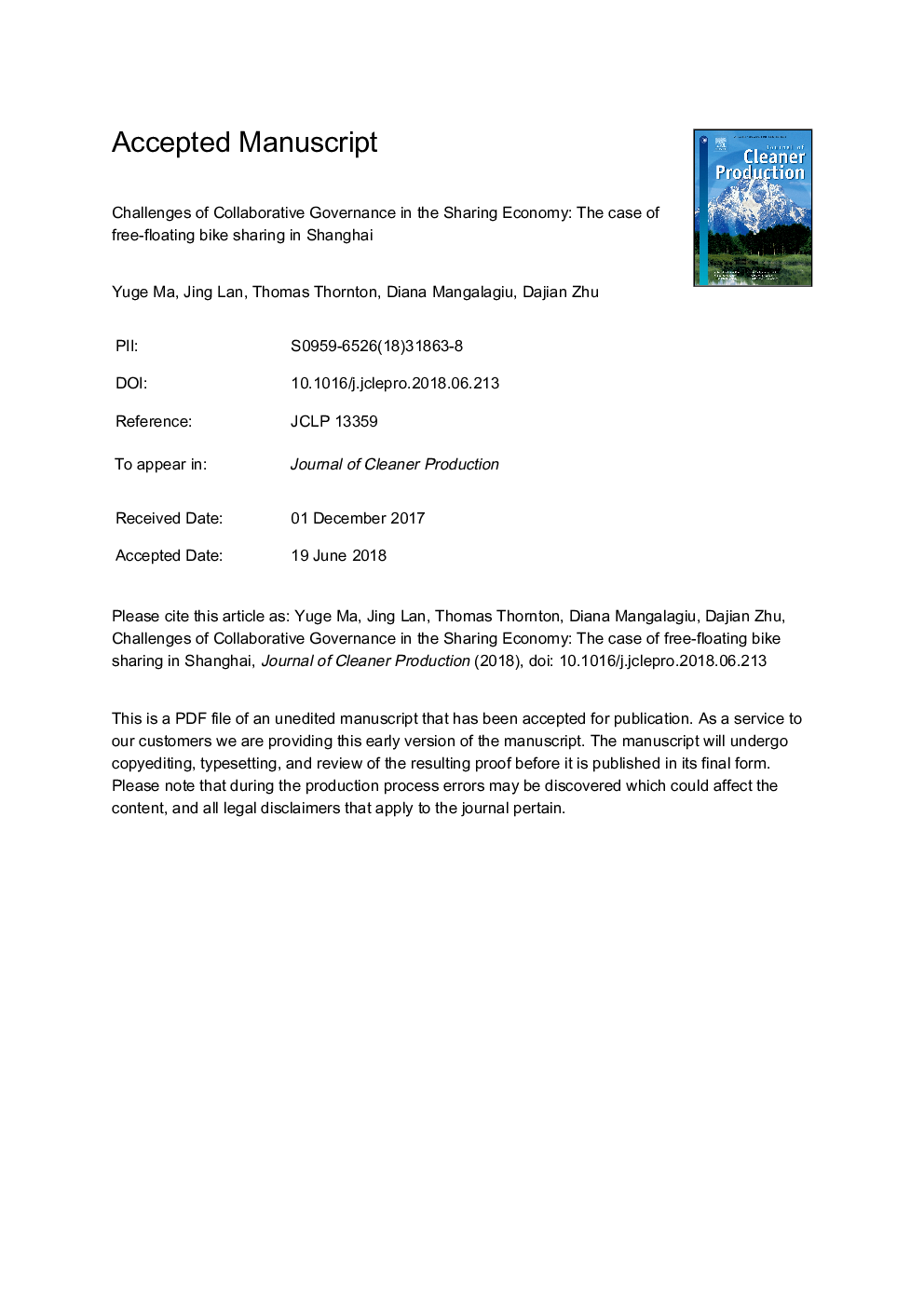| Article ID | Journal | Published Year | Pages | File Type |
|---|---|---|---|---|
| 8093851 | Journal of Cleaner Production | 2018 | 22 Pages |
Abstract
Most sharing mobility business models promise green and affordable transport in cities. However, their rapid scale-up processes have often caused significant disruption and stresses to urban governance. Free-floating bike sharing (FFBS) is highly-touted in Shanghai as a means to bring biking habits back to an overly car-congested city. Despite substantially changing the behaviour of Shanghai citizens to adopt shared bikes within a short period of time (2016-2017), the FFBS has hit a threshold of oversupply, under-distribution and user misbehaviour problems, which endanger the environmental and social sustainability of innovative urban mobility schemes. In this paper, we focus on the FFBS case study and examine how commercial, political and social actors interact in addressing the emerging public problems in the FFBS scale-up process from a collaborative governance perspective. We find that the lack of recognition and integration of new social actors, such as user groups, as agents in the scheme are key obstacles to a fully-functioning government-business-society collaborative regime. We argue that this hindrance is a function of the existing socio-economic relations within the city. Our results suggest that the city's government needs to be more agile to accommodate, nurture and integrate emerging social actors as governance partners in the sharing economy, in order to ensure its efficacy, resilience and sustainability. We propose an alternative governance model to improve the effectiveness of the collaborative governance regime towards urban sustainability through engaging the society in better and smarter ways in the sharing economy.
Related Topics
Physical Sciences and Engineering
Energy
Renewable Energy, Sustainability and the Environment
Authors
Yuge Ma, Jing Lan, Thomas Thornton, Diana Mangalagiu, Dajian Zhu,
